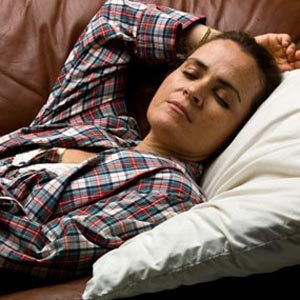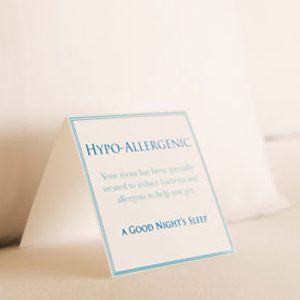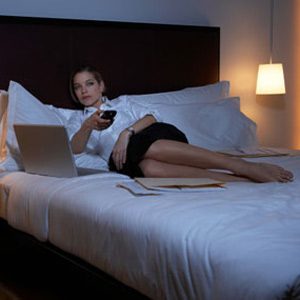With so many factors affecting the quality of our sleep, finding the right solution can be confusing. Here are seven suggestions from the fields of allergy, psychotherapy, pharmacology, and more.

Learn to Share
“If you like a firmer mattress and [your partner] likes a softer one, you don’t have to compromise. Get two singles, push them together, and use king sheets. Or you can buy a strap that attaches the mattresses to each other.” – Alan Hedge, PhD, professor of ergonomics at Cornell University, Ithaca, New York
“One of the biggest disrupters of sleep is the pulling and tugging of sheets and blankets. I tell couples that each person should have a sheet and blanket. If you pull a big comforter or duvet over the top when you make the bed, you really can’t tell. Couples call me after I suggest that and say, ‘Wow-you changed our marriage.'” – Robert Oexman, chiropractor and director of the Sleep to Live Institute in Joplin, Missouri
(Photo: Digital Vision/Thinkstock)

Go to Bed Angry
“The classic line is that you shouldn’t go to bed angry, but that’s sometimes impossible. If you’re lying in the same bed but mentally throwing darts at each other, go to sleep on the couch.” – Jeffrey Sumber, a psychotherapist in Chicago, Illinois
(Photo: iStockphoto/Thinkstock)

Be Smart About Allergies
“Pillows and bed coverings advertised as ‘hypoallergenic’ aren’t necessarily worth buying. That just means a product is made out of a substance you can’t be allergic to, not that it prevents allergies. Instead, get dustmite-proof covers for your pillow, mattress, and box spring.” – Jacqueline Eghari-Sabet, MD, an allergist in Gaithersburg, Maryland
(Photo: Jupiterimages/Comstock/Thinkstock)

Avoid Technology
“The cooler white and blue light emitted by a computer monitor stimulates brain activity and makes it difficult for your brain to wind down. Download the software at stereopsis.com/flux. It gradually dims your screen at sundown, shifting your monitor’s colors to warmer red hues.” – Colin Grey, a time-management coach in London, England
“Watching TV at night may seem relaxing, but it beams light into your eyes, which is an ‘alert’ signal for the brain. Read a book before bed instead.” – Tara Brass, MD, a psychiatrist in New York, NY
(Photo: Leonard McLane/Photodisc/Thinkstock)

Cool Down
“A hot bath will increase your skin temperature, which eventually decreases your core body temperature. Do the same thing for yourself that you’d do for a young child-make sure you take a bath a half hour or so before bed time.” – Robert Oexman
(Photo: Brand X Pictures/Thinkstock)

Cool Down Hot Flashes
“If you wake up with hot flashes, of course you should keep the room cool and wear layered sleep clothing. But also keep a glass of ice water by the bed; sipping it will help lower your body temperature so you can get back to sleep.” – Becky Wang-Cheng, MD, an internist in Kettering, Ohio and coeditor of Menopause
(Photo: Stockbyte/Thinkstock)

Avoid Antisleeping Pills
“A lot of people take bedtime pain relievers that contain caffeine and don’t even realize it. Excedrin has 65 milligrams of caffeine per tablet-if you take two, that’s as much as a cup of coffee. Check the label: Caffeine is always listed as an active ingredient.” – Jan Engle, professor of pharmacy at the College of Pharmacy, University of Illinois at Chicago
“An oral decongestant might help you breathe better, but it can increase your heart rate, which makes it hard to sleep. A nasal decongestant can rev you up too. At night, try a saline spray or wash instead.” – Eric Alvarez, a pharmacist in Miami, Florida
(Photo: iStockphoto/Thinkstock)